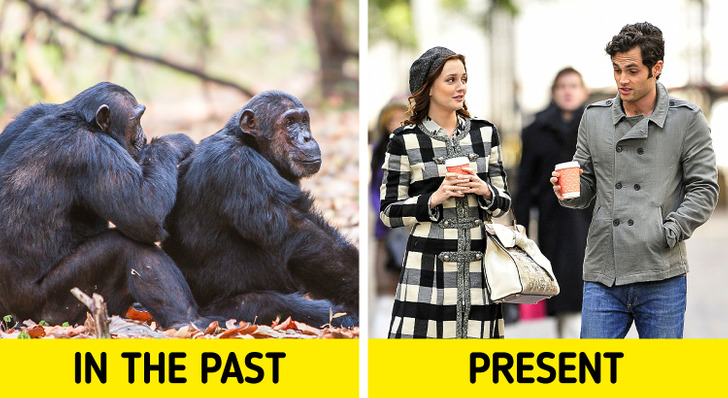6 Reasons Why Gossip Is Actually Good for You
Socrates once said: “Strong minds discuss ideas, average minds discuss events, weak minds discuss people.” But the thing is, very few of us actually discuss ideas on a daily basis and instead talk about our relationships with others. This is the way we interact with friends, family, and people in our close circle. And surprisingly, this type of communication is an essential part of the evolution of language.
We at Bright Side wanted to debunk all the myths around gossip and find out if it really is a vice or not. The results we got from this are really interesting and will probably give you something to talk about with your friends.
1. Gossip is an important part of language evolution.
Gossip could be one of the main reasons for the evolution of language. Language, per se, helps us communicate and teach with facts and skills, it allows us to know who can be trusted, it helps us form relationships, and it facilitates all kinds of interactions. In order to get to know all this information, gossip was (and is) the answer.
When living in a group, we required bigger and better brains to retain all this information. In the past, our ancestors lived in much larger groups. Unlike apes, who maintained their social relationships by grooming, our human ancestors were more likely to develop gossip as a way to socialize more effectively.
2. Gossip enables social bonds.
Gossip was an essential part of the communication that helped our ancestors survive. Researchers say that gossip isn’t necessarily negative, but can be positive or neutral.
Our ancestors probably used gossip as a way to bond, just like we do now! Chit-chat is mainly talking about other people and passing on social information, which in turn makes gossip a way to build connections. This gives us the ability to spread valuable information to very large social networks and maintain group functionality over time.
3. Gossip is proof of cultural learning.

Other researchers also state that gossip is evidence of cultural learning. It offers teaching experiences and provides people with examples of what is socially acceptable and what is not, which can be used as a tool to measure how moral a community is.
If, for example, in a social circle, it is found that a person constantly cheats, the rest of the community will begin to make negative comments about that person. This could be used as a way of warning others about the consequences of cheating.
4. Gossiping can help you calm your body in stressful situations.
A 2012 study showed that there are psychological distinctions between passive and active involvement in gossip.
This study showed that when participants heard about someone else’s antimoral behavior or unfair situation, they experienced a heart rate increase. But when they were able to actively engage in gossip about the other person or situation, it put them at ease and lowered their heart rate. The conclusion of this study suggests that active gossip about stressful situations can help calm the body.
5. It is useful to promote positive cooperation.

There is a common saying that, “Your reputation precedes you,” and the origin of this probably comes from a piece of gossip that someone else spread about you. This, in turn, makes gossip useful in promoting cooperation among members of a community.
In a study by the University of Toronto’s Rotman School of Management, the results suggested that gossip helped identify those in a group who were behaving selfishly and quickly expelled them. Through some group exercises, the participants were able to notice how much the participants contributed for mutual benefit and communicated with each other about who would be excluded for behaving selfishly.
6. Gossiping can say a lot about your relationship with your partner or friends

In a relationship, trust is one of the main factors that makes this type of connection possible. And surprisingly, gossip can say a lot about the relationships we have with each other. You will only spread gossip to someone if you feel close enough to that person.
When you share a secret or an experience, it takes some intimacy to open up. Gossip can prevent loneliness and facilitate bonding and closeness. So the next time you want to see how your partner or friend feels about you, pay attention to the type of information they are giving you.
Bonus: Gossip played a big role in the construction of grammar as we know it nowadays.

If you ever wonder where the complexity of grammar comes from, the answer might lie in gossip. In the past, our ancestors didn’t need many grammatical rules to communicate simple instructions, but to explain more complex situations like someone else doing a certain action that would impact a situation, a stronger grammatical structure was needed.
The simple subject, verb, and object formula that resembles who did what to whom seems designed for gossip. In fact, the entire narrative is related to this basic structure of language. The next time you’re reading your favorite book or watching your favorite TV show, you may realize that the structure behind those stories is based on gossip. Even when there’s fiction, we are drawn to learning about other people’s lives.
What is your opinion about gossip? Let us know your thoughts in the comments!


